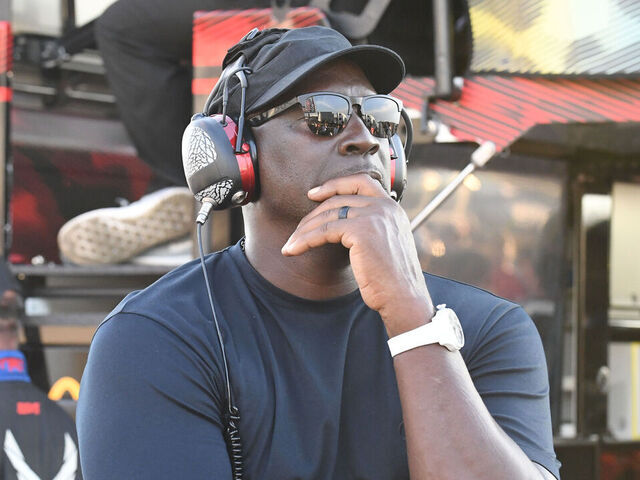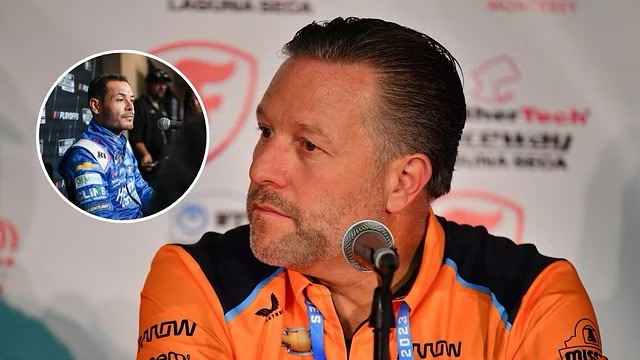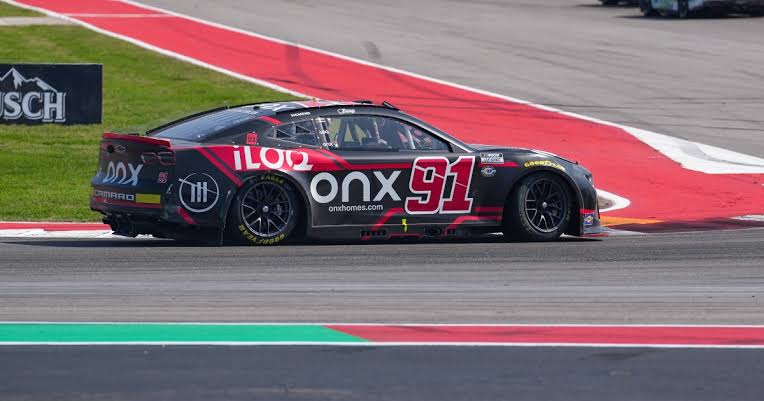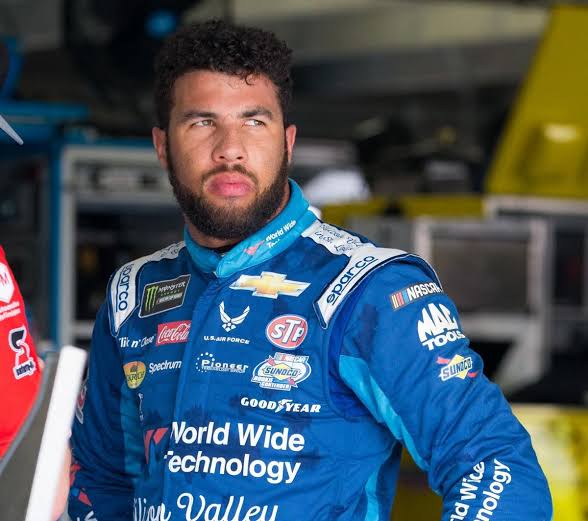HAMPTON, Ga. — Michael Jordan’s 23XI Racing, co-owned with NASCAR driver Denny Hamlin, stands among the two NASCAR Cup Series teams that have not agreed to NASCAR’s new charter deal. The other team holding out is Front Row Motorsports, owned by Bob Jenkins, who operates a chain of restaurants.
Negotiations between NASCAR and the teams have been ongoing for two years. Industry sources reported that NASCAR had warned teams on Friday night that failing to sign the new charter agreement by the deadline could jeopardize their charters for the 2025 season.
Curtis Polk, a key figure at 23XI Racing and long-time business manager for Michael Jordan, expressed frustration during a press briefing at Atlanta Motor Speedway on Sunday. He claimed that NASCAR had consistently been uncooperative in negotiations with 23XI Racing. Polk described the situation as a David versus Goliath scenario, where NASCAR’s considerable bargaining power had overshadowed 23XI’s efforts.
“NASCAR has exerted undue influence over the charter process, repeatedly dismissing broad team requests while making minor concessions for specific issues favored by other teams,” Polk said. He criticized the proposed agreement for stripping away “essential rights” but did not elaborate on the specifics of the requests made by 23XI Racing.
NASCAR President Steve Phelps and Front Row Motorsports owner Bob Jenkins chose not to comment on the situation. Polk highlighted that while other teams might have felt pressured into signing, 23XI Racing faced unique challenges that made the proposed terms particularly damaging. He argued that such practices are unacceptable in the current climate and likened the contract terms to regressive practices of the past.
The consequences of not signing the agreement remain uncertain. It is unclear whether NASCAR would revoke the charters and redistribute them or hold them in reserve. Currently, both 23XI and Front Row Motorsports hold two charters each, with plans to acquire one of Stewart-Haas Racing’s charters after this season.
Brad Keselowski, a former Cup champion and co-owner of RFK Racing, suggested that teams were not necessarily coerced into signing the agreement. “We felt it was in our best interest to finalize the deal and move forward,” he remarked. Keselowski emphasized the importance of resolving these issues promptly.
Denny Hamlin of 23XI Racing redirected most questions to the team’s official statement, admitting that while the team could technically race without a charter, it would face significant financial challenges. Polk indicated that the team’s future actions depend on reaching a satisfactory agreement with NASCAR. “We have the resources to race if we choose to,” Polk stated.
NASCAR officials did not confirm the number of teams that have signed the new agreement, though several team owners confirmed their participation without providing additional comments. Polk stressed that 23XI Racing sought a deal that would benefit all parties, not just their own interests. He described the contract as one-sided and detrimental, arguing it would return the sport to less favorable conditions compared to the current charter system.
Teams have been pushing for a larger share of the television rights revenue, which amounts to $1.1 billion annually from 2025 to 2031. The previous agreement allocated 25 percent of this revenue to teams, while NASCAR received 10 percent and tracks owned by NASCAR received 65 percent. Reports suggest that the new deal offers teams a larger share of this revenue, around 35-40 percent, but also requires concessions in other areas, including media rights, driver appearances, and charter sales.
Keselowski acknowledged improvements in the economic terms but noted that the sport’s financial landscape is heavily influenced by media rights deals. The teams also requested permanent charters, but NASCAR rejected this proposal. The new agreement aligns with the current television deal through 2031.
Polk refrained from discussing specifics or negotiating in public, stating that he last met with NASCAR Chairman Jim France in May. He emphasized that the team would not be coerced into signing an unfavorable agreement and hinted that they would take necessary steps to protect their interests.
A NASCAR charter, akin to a franchise, guarantees a team a spot in every race and a consistent payout based on performance and past achievements. Charters also provide financial stability, as teams without them earn significantly less. Currently, there are 36 charters available, and non-charter teams, or “open” cars, face challenges qualifying for races. The absence of a charter forces teams to rely heavily on sponsorships, which can constitute a significant portion of their revenue.
Brad Keselowski compared NASCAR to other major sports leagues, noting that there is a desire to improve the sport’s financial standing similarly. Bubba Wallace, a driver for 23XI Racing, mentioned that the uncertainty around the charter negotiations has affected his ability to secure a contract for the 2025 season. Hamlin acknowledged the impact of this uncertainty on the team’s future decisions.
Bob Pockrass covers NASCAR for FOX Sports, bringing extensive experience in motorsports journalism.
Michael Jordan’s 23XI Racing and Front Row Motorsports Reveal plans for New NASCAR Charter Agreement




